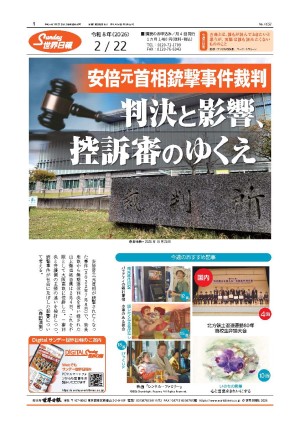希望を託せる中東取引 A Middle East deal worthy of hope
世の中は、取引に次ぐ取引で成り立っている。トランプ大統領の言葉によれば「かつてない、最高にやり難いような交渉」に挑戦しなければ、その人は最強の交渉人と主張できないことになる。それで、彼は挑戦しているのだ――つまり、イスラエル相手の、別個のパレスチナ国家樹立のための崖っぷちを行くような、終わりなき紛争に見えるものに、終止符を打とうとしているのだ。過去の失敗続きの長い歴史があるにもかかわらず今回は、希望を託せる理由がある。
...【全文を読む】







